Alberta
Tim Hortons app violated privacy laws in collection of ‘vast amounts’ of sensitive location data
People who downloaded the Tim Hortons app had their movements tracked and recorded every few minutes of every day, even when their app was not open, in violation of Canadian privacy laws, a joint investigation by federal and provincial privacy authorities has found.
The investigation concluded that Tim Hortons’ continual and vast collection of location information was not proportional to the benefits Tim Hortons may have hoped to gain from better targeted promotion of its coffee and other products.
The Office of the Privacy Commissioner of Canada, Commission d’accès à l’information du Québec, Office of the Information and Privacy Commissioner for British Columbia, and Office of the Information and Privacy Commissioner of Alberta issued their Report of Findings today.
The Tim Hortons app asked for permission to access the mobile device’s geolocation functions, but misled many users to believe information would only be accessed when the app was in use. In reality, the app tracked users as long as the device was on, continually collecting their location data.
The app also used location data to infer where users lived, where they worked, and whether they were travelling. It generated an “event” every time users entered or left a Tim Hortons competitor, a major sports venue, or their home or workplace.
The investigation uncovered that Tim Hortons continued to collect vast amounts of location data for a year after shelving plans to use it for targeted advertising, even though it had no legitimate need to do so.
The company says it only used aggregated location data in a limited way, to analyze user trends – for example, whether users switched to other coffee chains, and how users’ movements changed as the pandemic took hold.
While Tim Hortons stopped continually tracking users’ location in 2020, after the investigation was launched, that decision did not eliminate the risk of surveillance. The investigation found that Tim Hortons’ contract with an American third-party location services supplier contained language so vague and permissive that it would have allowed the company to sell “de-identified” location data for its own purposes.
There is a real risk that de-identified geolocation data could be re-identified. A research report by the Office of the Privacy Commissioner of Canada underscored how easily people can be identified by their movements.
Location data is highly sensitive because it can be used to infer where people live and work, reveal trips to medical clinics. It can be used to make deductions about religious beliefs, sexual preferences, social political affiliations and more.
Organizations must implement robust contractual safeguards to limit service providers’ use and disclosure of their app users’ information, including in de-identified form. Failure to do so could put those users at risk of having their data used by data aggregators in ways they never envisioned, including for detailed profiling.
The investigation also revealed that Tim Hortons lacked a robust privacy management program for the app, which would have allowed the company to identify and address many of the privacy contraventions the investigation found.
The four privacy authorities recommended that Tim Hortons:
- Delete any remaining location data and direct third-party service providers to do the same;
- Establish and maintain a privacy management program that: includes privacy impact assessments for the app and any other apps it launches; creates a process to ensure information collection is necessary and proportional to the privacy impacts identified; ensures that privacy communications are consistent with, and adequately explain app-related practices; and
- Report back with the details of measures it has taken to comply with the recommendations.
Tim Hortons agreed to implement the recommendations.
QUOTES
“Tim Hortons clearly crossed the line by amassing a huge amount of highly sensitive information about its customers. Following people’s movements every few minutes of every day was clearly an inappropriate form of surveillance. This case once again highlights the harms that can result from poorly designed technologies as well as the need for strong privacy laws to protect the rights of Canadians.”
“This report eloquently illustrates the risks inherent in the use of geolocation and the importance of transparent and accountable privacy practices. Without a suitable prior assessment, Tim Hortons collected sensitive information about its customers through its app, without their adequate knowledge or consent. It is to put an end to this kind of practice that Quebec has reviewed its legislation protecting personal information giving more powers to the Commission and making companies more accountable. ”
“This investigation sends a strong message to organizations that you can’t spy on your customers just because it fits in your marketing strategy. Not only is this kind of collection of information a violation of the law, it is a complete breach of customers’ trust. The good news in this case is that Tim Hortons has agreed to follow the recommendations we set out, and I hope other organizations can learn from the results of this investigation.”
“This investigation is yet another example where an organization has not effectively notified customers about its practices. Tim Hortons’ customers did not have adequate information to consent to the location tracking that was actually occurring. When people download and use these types of apps, it’s important that they know in advance what will happen to their personal information and that organizations follow through with their commitments.”
Alberta
Ford and Trudeau are playing checkers. Trump and Smith are playing chess
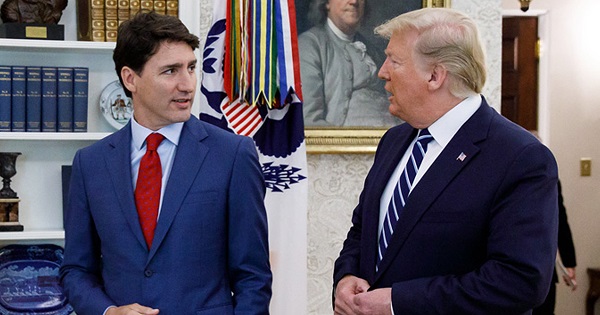
By Dan McTeague
Ford’s calls for national unity – “We need to stand united as Canadians!” – in context feels like an endorsement of fellow Electric Vehicle fanatic Trudeau. And you do wonder if that issue has something to do with it. After all, the two have worked together to pump billions in taxpayer dollars into the EV industry.
There’s no doubt about it: Donald Trump’s threat of a blanket 25% tariff on Canadian goods (to be established if the Canadian government fails to take sufficient action to combat drug trafficking and illegal crossings over our southern border) would be catastrophic for our nation’s economy. More than $3 billion in goods move between the U.S. and Canada on a daily basis. If enacted, the Trump tariff would likely result in a full-blown recession.
It falls upon Canada’s leaders to prevent that from happening. That’s why Justin Trudeau flew to Florida two weeks ago to point out to the president-elect that the trade relationship between our countries is mutually beneficial.
This is true, but Trudeau isn’t the best person to make that case to Trump, since he has been trashing the once and future president, and his supporters, both in public and private, for years. He did so again at an appearance just the other day, in which he implied that American voters were sexist for once again failing to elect the nation’s first female president, and said that Trump’s election amounted to an assault on women’s rights.
Consequently, the meeting with Trump didn’t go well.
But Trudeau isn’t Canada’s only politician, and in recent days we’ve seen some contrasting approaches to this serious matter from our provincial leaders.
First up was Doug Ford, who followed up a phone call with Trudeau earlier this week by saying that Canadians have to prepare for a trade war. “Folks, this is coming, it’s not ‘if,’ it is — it’s coming… and we need to be prepared.”
Ford said that he’s working with Liberal Finance Minister Chrystia Freeland to put together a retaliatory tariff list. Spokesmen for his government floated the idea of banning the LCBO from buying American alcohol, and restricting the export of critical minerals needed for electric vehicle batteries (I’m sure Trump is terrified about that last one).
But Ford’s most dramatic threat was his announcement that Ontario is prepared to shut down energy exports to the U.S., specifically to Michigan, New York, Wisconsin, and Minnesota, if Trump follows through with his plan. “We’re sending a message to the U.S. You come and attack Ontario, you attack the livelihoods of Ontario and Canadians, we’re going to use every tool in our toolbox to defend Ontarians and Canadians across the border,” Ford said.
Now, unfortunately, all of this chest-thumping rings hollow. Ontario does almost $500 billion per year in trade with the U.S., and the province’s supply chains are highly integrated with America’s. The idea of just cutting off the power, as if you could just flip a switch, is actually impossible. It’s a bluff, and Trump has already called him on it. When told about Ford’s threat by a reporter this week, Trump replied “That’s okay if he does that. That’s fine.”
And Ford’s calls for national unity – “We need to stand united as Canadians!” – in context feels like an endorsement of fellow Electric Vehicle fanatic Trudeau. And you do wonder if that issue has something to do with it. After all, the two have worked together to pump billions in taxpayer dollars into the EV industry. Just over the past year Ford and Trudeau have been seen side by side announcing their $5 billion commitment to Honda, or their $28.2 billion in subsidies for new Stellantis and Volkswagen electric vehicle battery plants.
Their assumption was that the U.S. would be a major market for Canadian EVs. Remember that “vehicles are the second largest Canadian export by value, at $51 billion in 2023 of which 93% was exported to the U.S.,”according to the Canadian Vehicle Manufacturers Association, and “Auto is Ontario’s top export at 28.9% of all exports (2023).”
But Trump ran on abolishing the Biden administration’s de facto EV mandate. Now that he’s back in the White House, the market for those EVs that Trudeau and Ford invested in so heavily is going to be much softer. Perhaps they’d like to be able to blame Trump’s tariffs for the coming downturn rather than their own misjudgment.
In any event, Ford’s tactic stands in stark contrast to the response from Alberta, Canada’s true energy superpower. Premier Danielle Smith made it clear that her province “will not support cutting off our Alberta energy exports to the U.S., nor will we support a tariff war with our largest trading partner and closest ally.”
Smith spoke about this topic at length at an event announcing a new $29-million border patrol team charged with combatting drug trafficking, at which said that Trudeau’s criticisms of the president-elect were, “not helpful.” Her deputy premier Mike Ellis was quoted as saying, “The concerns that president-elect Trump has expressed regarding fentanyl are, quite frankly, the same concerns that I and the premier have had.” Smith and Ellis also criticized Ottawa’s progressively lenient approach to drug crimes.
(For what it’s worth, a recent Léger poll found that “Just 29 per cent of [Canadians] believe Trump’s concerns about illegal immigration and drug trafficking from Canada to the U.S. are unwarranted.” Perhaps that’s why some recent polls have found that Trudeau is currently less popular in Canada than Trump at the moment.)
Smith said that Trudeau’s criticisms of the president-elect were, “not helpful.” And on X/Twitter she said, “Now is the time to… reach out to our friends and allies in the U.S. to remind them just how much Americans and Canadians mutually benefit from our trade relationship – and what we can do to grow that partnership further,” adding, “Tariffs just hurt Americans and Canadians on both sides of the border. Let’s make sure they don’t happen.”
This is exactly the right approach. Smith knows there is a lot at stake in this fight, and is not willing to step into the ring in a fight that Canada simply can’t win, and will cause a great deal of hardship for all involved along the way.
While Trudeau indulges in virtue signaling and Ford in sabre rattling, Danielle Smith is engaging in true statesmanship. That’s something that is in short supply in our country these days.
As I’ve written before, Trump is playing chess while Justin Trudeau and Doug Ford are playing checkers. They should take note of Smith’s strategy. Honey will attract more than vinegar, and if the long history of our two countries tell us anything, it’s that diplomacy is more effective than idle threats.
Dan McTeague is President of Canadians for Affordable Energy.
Alberta
Your towing rights! AMA unveils measures to help fight predatory towing

From the Alberta Motor Association
Know Before the Tow: Towing Rights in Alberta
Predatory towing is a growing concern in major cities across the province. The Alberta Motor
Association (AMA), in partnership with the Calgary Police Service and Calgary Fire Department,
wants to ensure Albertans are not only aware of this emerging issue but also know how to stop
it.
Today, AMA launches Know Before the Tow—a new, provincewide awareness campaign that
empowers Albertans with the knowledge needed to stay confident and in control when faced with
a tow scam. The campaign features a list of five key towing rights that every Alberta driver should
know:
1. You have the right to refuse unsolicited towing services.
2. You have the right to choose who tows your vehicle, and where, unless
otherwise directed by police.
3. You have the right to access your vehicle to retrieve personal items during a
storage facility’s business hours.
4. You have the right to ask if the towing company receives a kickback for taking
your vehicle to a particular storage facility or repair shop.
5. You have the right to a quote prior to service, and an itemized invoice prior to
making payment.
“Being in a collision or broken down at the roadside is stressful enough; the last thing any Albertan
needs is high pressure from an unscrupulous tower,” says Jeff Kasbrick, Vice-President,
Advocacy and Operations, AMA. “These towing rights are clear and remind every Albertan that
they’re in the driver’s seat when it comes to who they choose to tow their vehicle.”
Edmonton and Calgary in particular are seeing increasing reports of predatory towing. Unethical
operators will arrive at a collision or breakdown scene uninvited, create a false sense of urgency
to remove the vehicle, and ultimately leave drivers facing huge fees.
Starting today, Albertans can visit ama.ab.ca/KnowBeforeTheTow to download a digital copy of
their towing rights, helping them feel confident if faced with a tow scam. And soon, all AMA centres
will offer free print versions, which are small enough to tuck in a glovebox.
“Alberta’s towing industry is still highly reputable, with the vast majority of operators committed
to fair and professional service. In fact, AMA and our roadside assistance network is proud to
represent 80% of all private-passenger tows in the province, so our members can be confident
that we’ll always protect them—just as we have for nearly 100 years,” says Kasbrick.
“By knowing your rights and choosing trusted providers like AMA, you can avoid unnecessary
stress, costs, and uncertainty. Because the road to recovery after a collision shouldn’t have to
include fighting for your vehicle.”
Sergeant Brad Norman, Calgary Police Service Traffic Section, says law enforcement continues
to work diligently with first responders and community partners like AMA to put the brakes on
predatory towers, who “are showing up at collision sites and pressuring overwhelmed and
frightened victims into paying high towing rates.”
“Our priority is to ensure the safety of collision victims, the public, and first responders at
collision sites. Part of this effort is educating motorists about their rights so that they Know
Before the Tow that they can say no to unsolicited towing services and choose a reputable
tower of their choice instead,” says Norman. “No one deserves to be taken advantage of after
being involved in a collision.”
To learn more, and to view an expanded version of Alberta towing rights, visit
ama.ab.ca/KnowBeforeTheTow
-
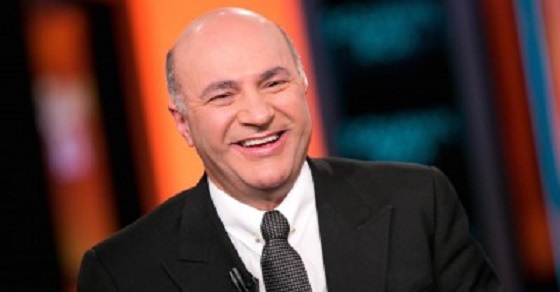
 Alberta1 day ago
Alberta1 day agoProposed $70 billion AI data centre in MD of Greenview could launch an incredible new chapter for western Canadian energy
-

 Alberta1 day ago
Alberta1 day agoYour towing rights! AMA unveils measures to help fight predatory towing
-

 National2 days ago
National2 days agoWhen’s the election? Singh finally commits. Poilievre asks Governor General to step in
-

 Alberta17 hours ago
Alberta17 hours agoFord and Trudeau are playing checkers. Trump and Smith are playing chess
-
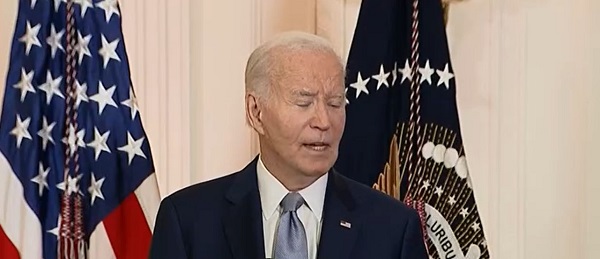
 Daily Caller2 days ago
Daily Caller2 days agoParty Leaders Exposed For ‘Lying’ About Biden Health
-
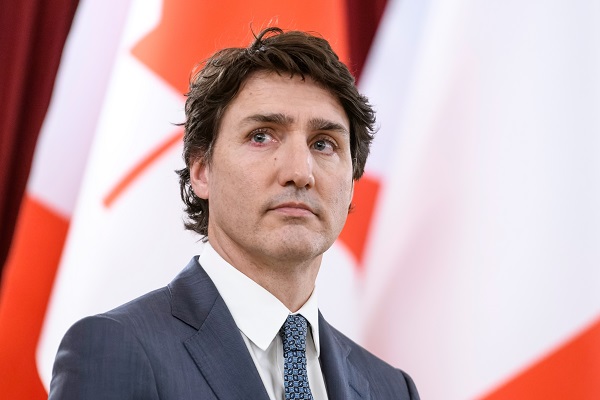
 Alberta2 days ago
Alberta2 days agoFree Alberta Strategy trying to force Trudeau to release the pension calculation
-

 Business1 day ago
Business1 day agoComparing four federal finance ministers in moments of crisis
-
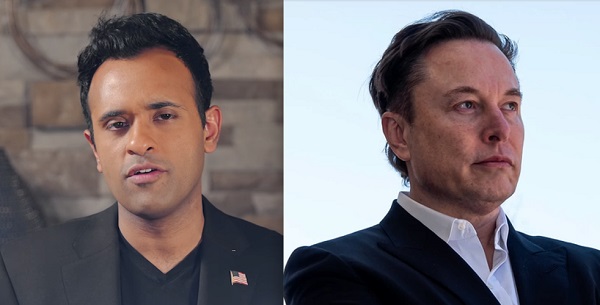
 Business2 days ago
Business2 days agoDOGE on the job: How Elon Musk and Vivek Ramaswamy caused the looming government shutdown






